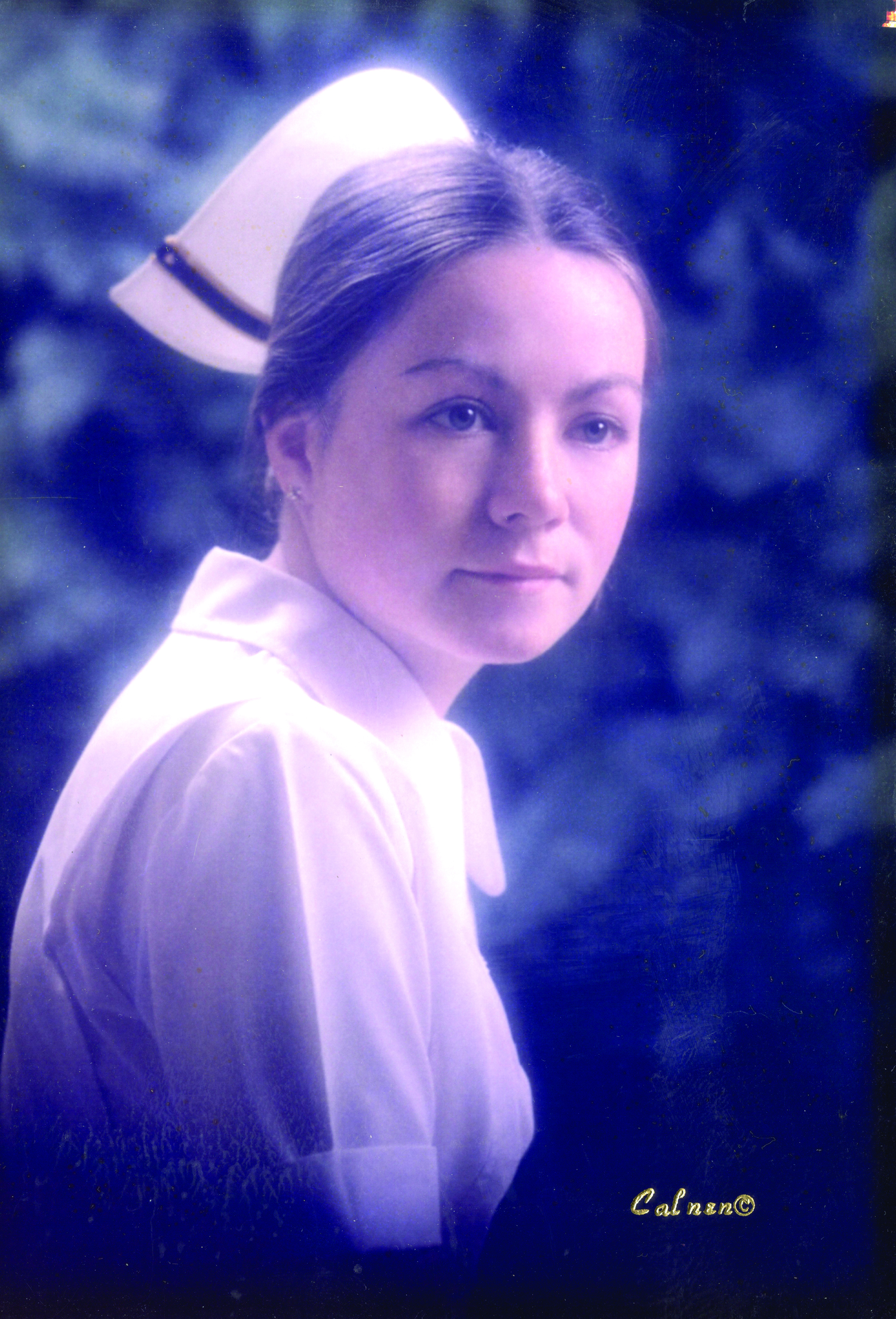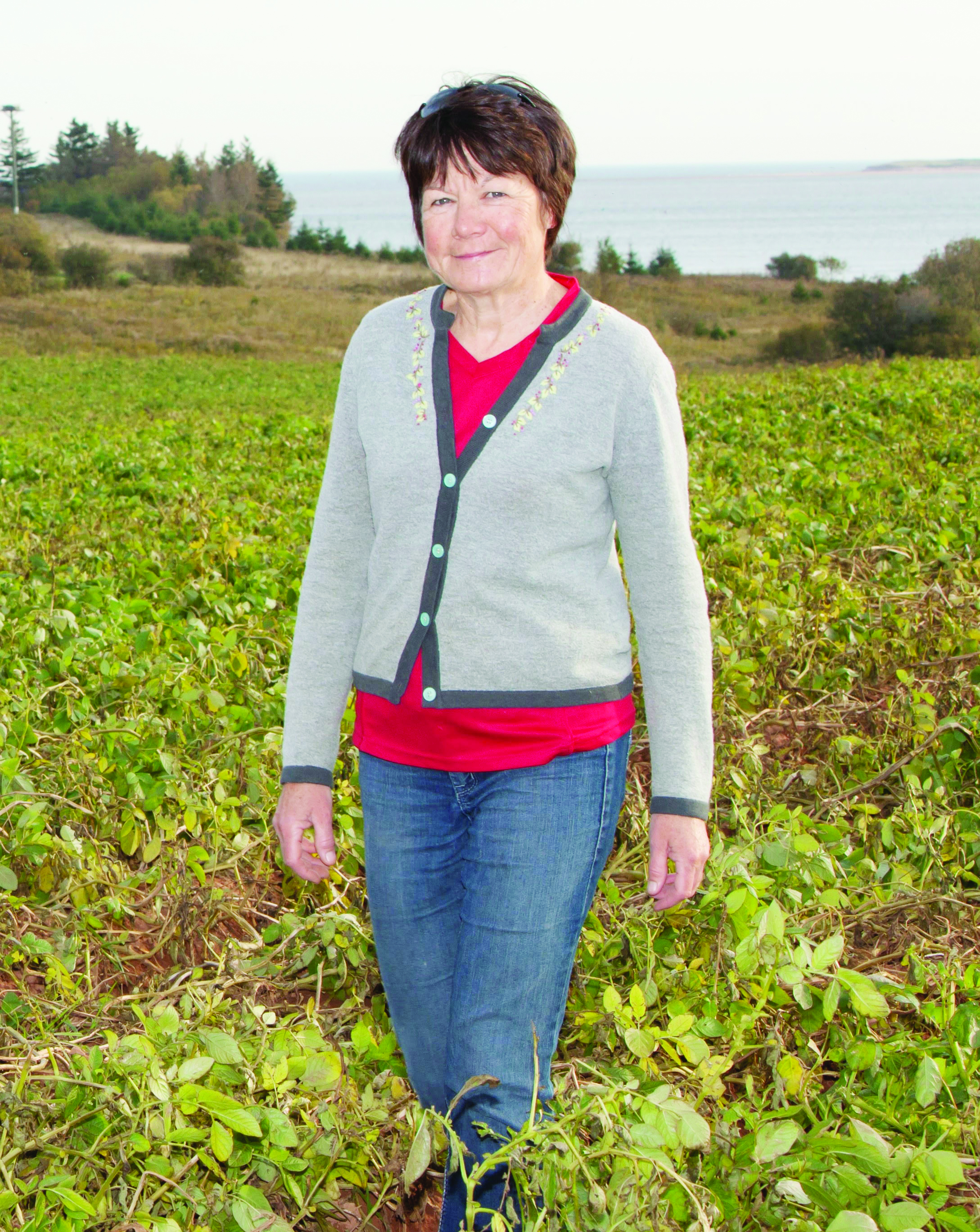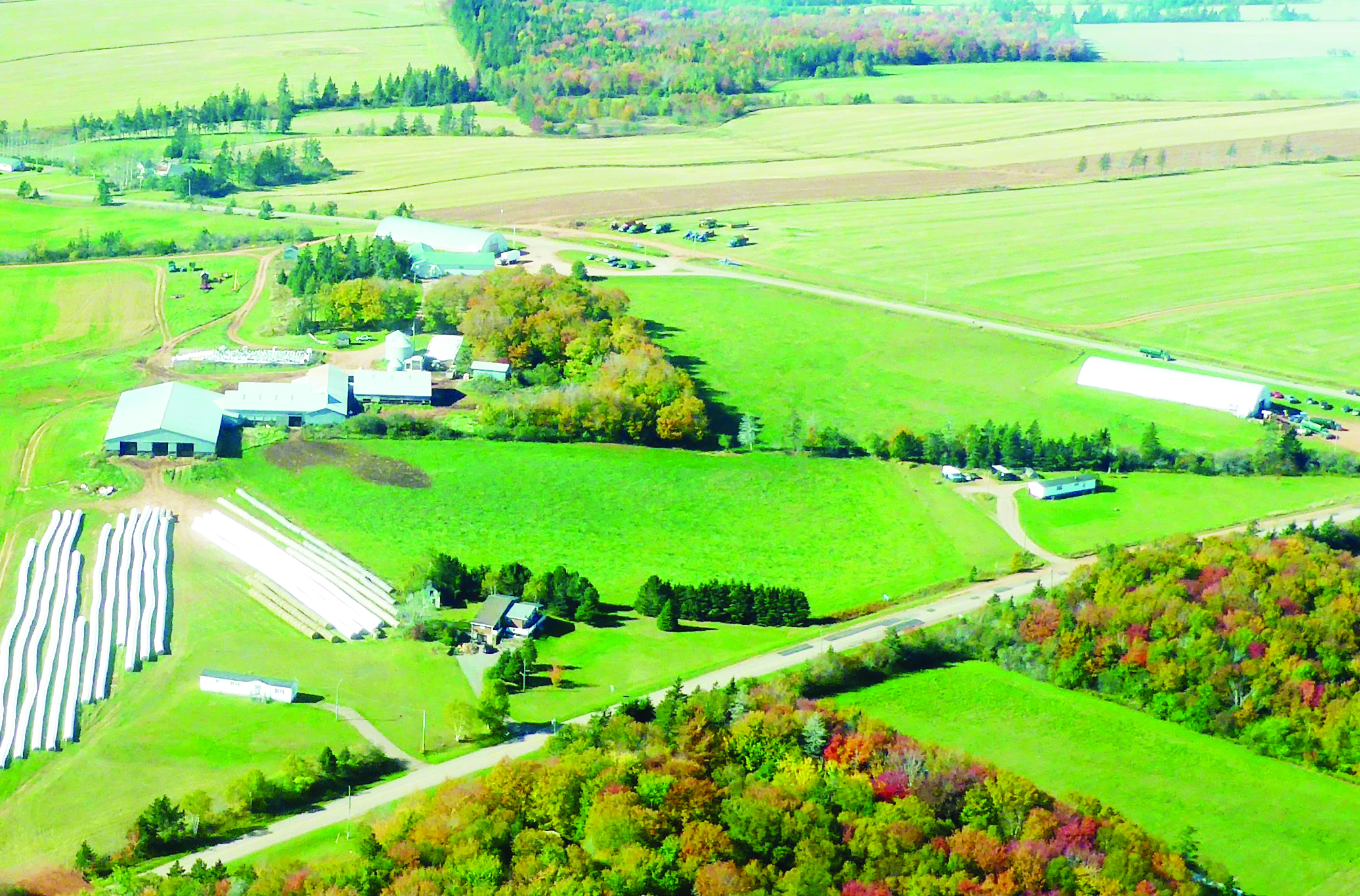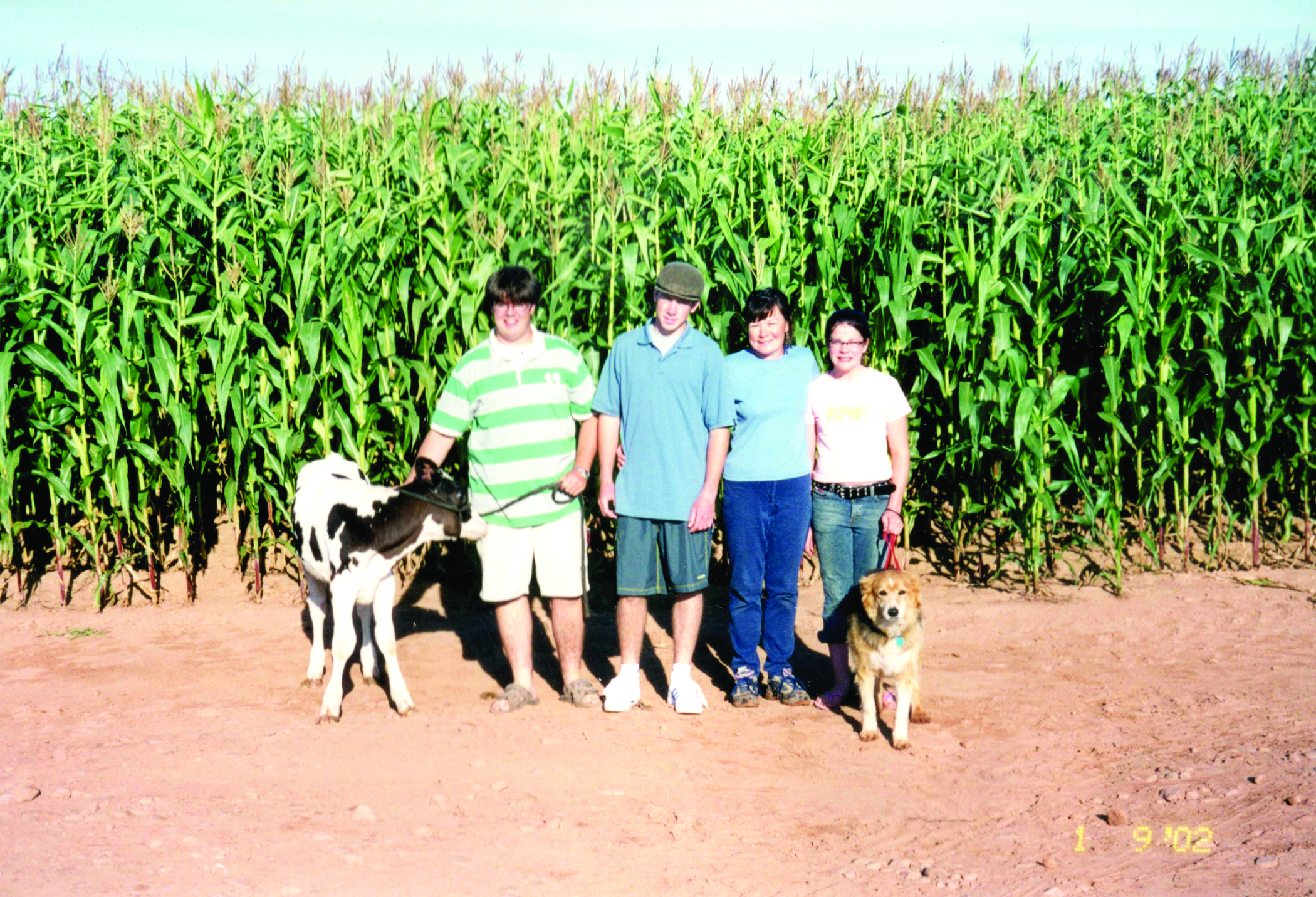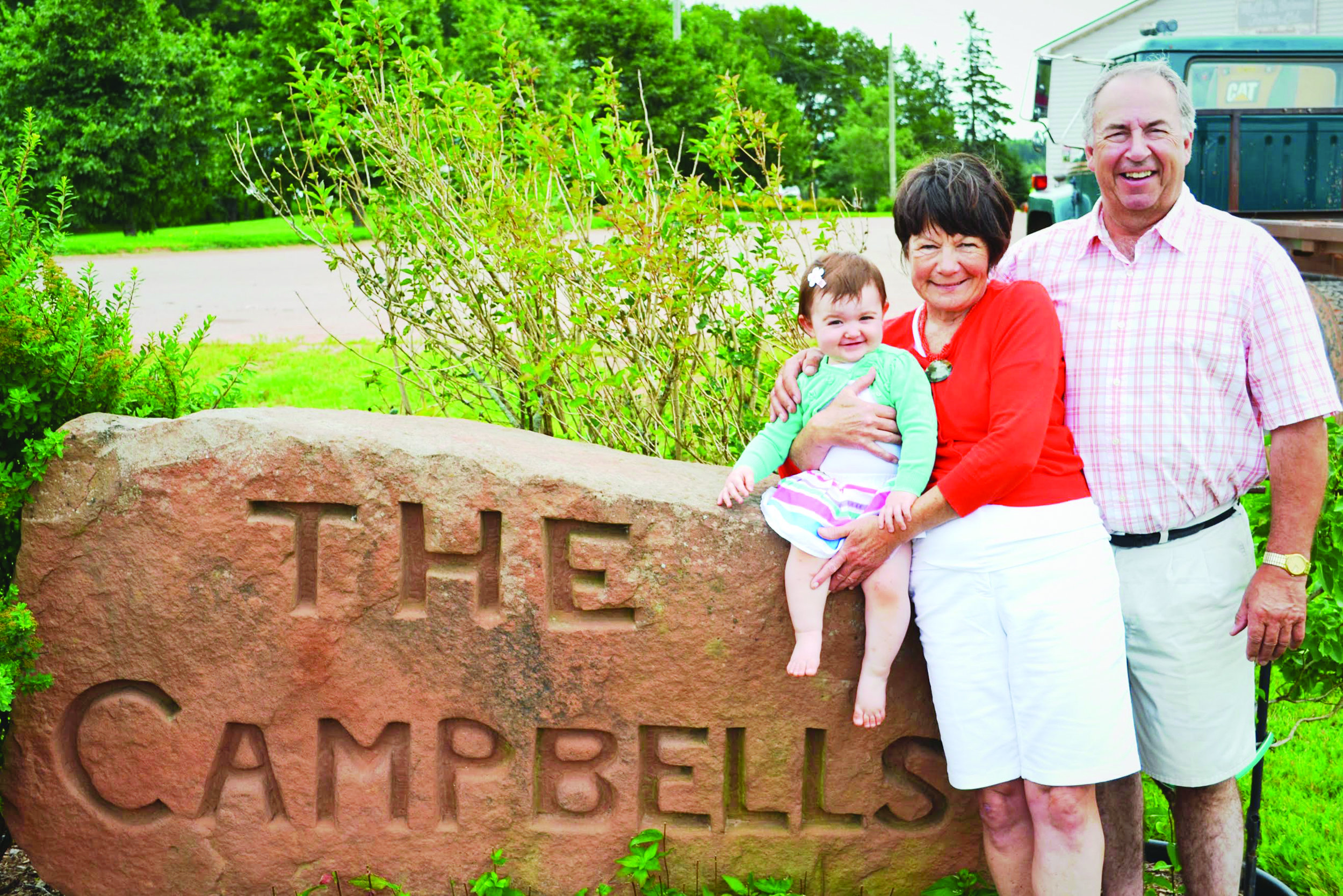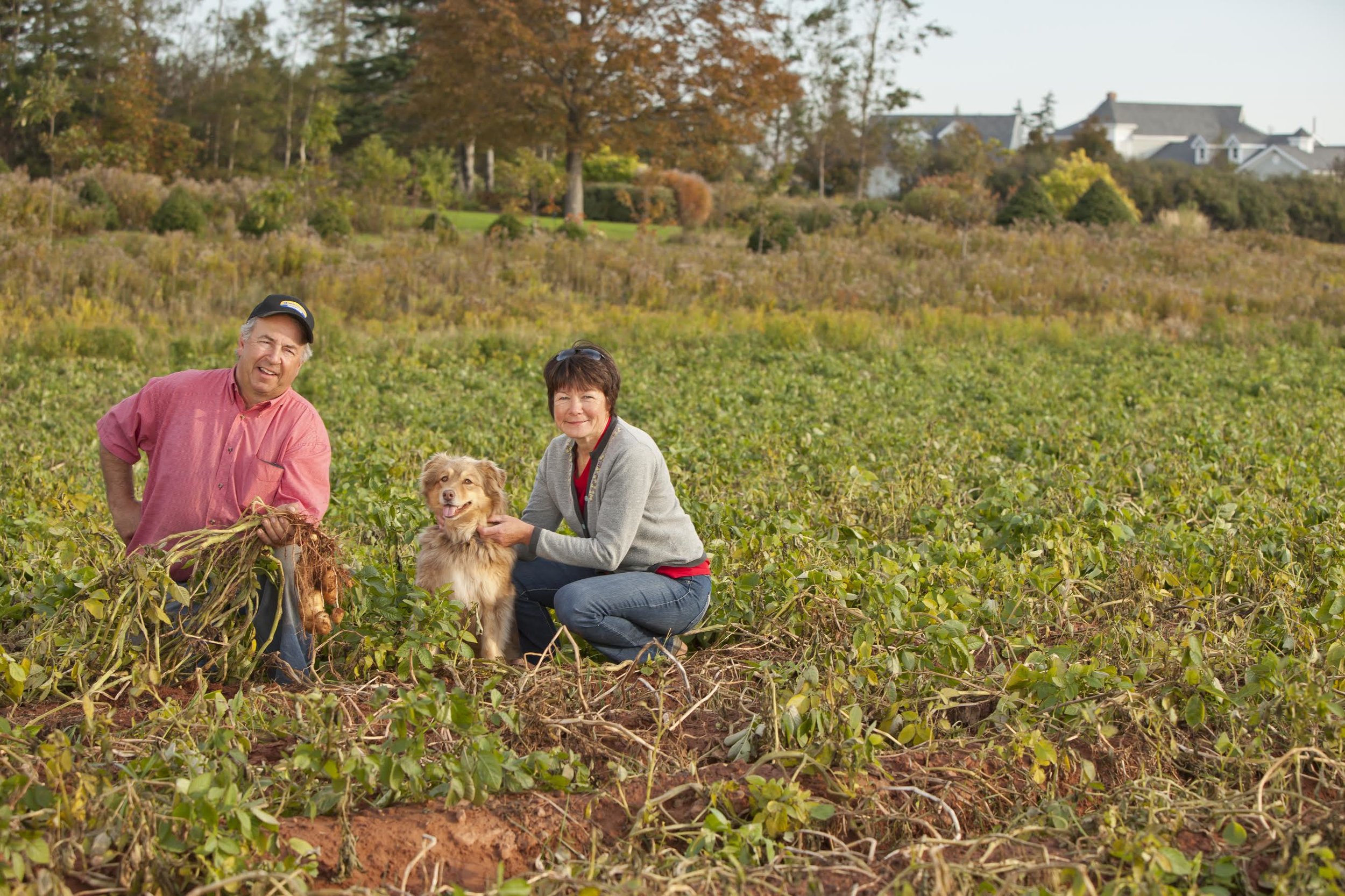P.E.I. farmer Bertha Campbell’s life is an impressive juggling act
/by Emily Leeson
Bertha Campbell has done her time grading potatoes, milking cows, and helping out in the fields. Somewhere along the line she also managed to raise three children, advance her career as a public health nurse, and volunteer her time and energy in community involvement.
“It’s a juggling act certainly for any family,” she said. “Raising children and nurturing your farm – it’s busy.”
Thirty-seven years into her farming career, Campbell has embraced everything that growing an agricultural business involves. She co-owns Mull Na Beinne Farms in Grahams Road in central P.E.I. with her husband Vernon. The farm now grows 600 acres of potatoes under contract for Cavendish Farms, produces finished beef for Atlantic Beef Products in Albany, P.E.I., milks 65-70 dairy cows, and employs up to 20 people.
Her accomplishments both on the farm and in the community have not gone unnoticed. In 1993, she and her husband were chosen as Canada’s Outstanding Young Farmers, and in 2011 Campbell received Farm Credit Canada’s Rosemary Davis Award recognizing her leadership and dedication to agriculture.
And on Nov. 17, federal Agriculture Minister Lawrence MacAulay announced Campbell’s appointment to the Farm Credit Canada (FCC) board of directors. As an FCC board member, Campbell now has a leadership role in the corporation that manages a loan portfolio of more than $32 billion for agribusinesses.
As a woman in agriculture, Campbell has been carving out a place for herself in an industry that has typically been dominated by men – or so it appears by the numbers. In the Atlantic provinces, only 22.6 percent of farm operators are female. That’s slightly below the national average of 27.5 percent. However, Campbell feels statistics don’t tell the full story. “I think agriculture, like everything, is evolving,” she said. “In the early years, there were fewer women involved in a visible way. But I think women have always been involved in the background, doing a lot of work that was instrumental to the farm’s success.”
Campbell grew up on one of what she calls the “small subsistence farms of the 1950s.” She said the farm of her childhood had “a few cows, a few pigs, a lot of hens, a horse – that type of thing.” After attending Dalhousie University for a nursing degree, Campbell returned to P.E.I. to start a farm with her husband.
“I guess you could say that we started the old-fashioned way – we started from scratch,” she recalled. In the early 1980s, they bought a few milk cows and planted a few acres of potatoes. In those early years, the couple did all the work themselves. Before and after her day job as a nurse, Campbell helped out on the farm. Over time, the farm gradually expanded, as did the household.
In 1992, Campbell decided that the farm should be able to provide for what had grown to be a family of five. The business needed more oversight and Campbell was the best woman for the job. “In an operation of our size, you need a logistics person, someone there backfilling, organizing,” she said. “Especially during busy times like planting or harvesting when you have a lot of staff on, making sure that they know their job and that they have what they need to do their work. Or looking after a breakdown or going for parts or delivering fuel. Those kinds of coordination jobs now fill my day.”
However, after leaving her nursing career and colleagues behind, it quickly became apparent to Campbell that although farm life was busy, it could also be lonely. “Being on a farm in a rural area can be pretty isolating, depending on what your role is, particularly if you are home with small children,” she said. “I think stepping out to be on boards was a way for me to be involved in the outside world as well as being on the farm.” She quickly found herself on the boards of the local minor hockey league and the figure skating club, and helping out with the Red Cross and at Sunday school.
Over the years, she’s built up an impressive resume of commitments made to her community. Campbell currently serves on the University of Prince Edward Island’s board of governors and on the Food Island Partnership and Amalgamated Dairies Ltd. boards. In the past, she’s been on a number of other boards and has also served as president of the P.E.I. Federation of Agriculture.
Among her other endeavours, Campbell somehow found the time to chronicle her maternal grandmother’s life in her recently published book, My Gaelic Grandmother, Memories of Mary Stewart: Rural Life in Valleyfield and Brudenell, Prince Edward Island 1894-1987.
Meanwhile, Mull Na Beinne Farms has continued to prosper and retain its diversification.
“Where we stand today, we farm about 2,000 acres,” said Campbell. “Farming is a challenge all of the time, in the sense that there are many forces at play that may jump up and bite you, whether it be disease in a herd, disease in a crop, or weather, drought, too much rain, interest rates, that sort of thing, trade issues with other countries. There has always been uncertainty in agriculture. Having said that, most farmers that I know love what they do.”
Campbell hopes the future will see more women visibly involved in the Island’s agricultural industry.
“It’s an exciting time in agriculture and on the farm because we are feeding a hungry world with a growing population,” she said. “It’s full of opportunity. We just have to continue to tell the story of what we do and why we do it – how we produce safe, nutritious food for our neighbours, for our markets, and for the world.”
